EXCLUSIVE: Big social media ranking of the stars of the Olympics
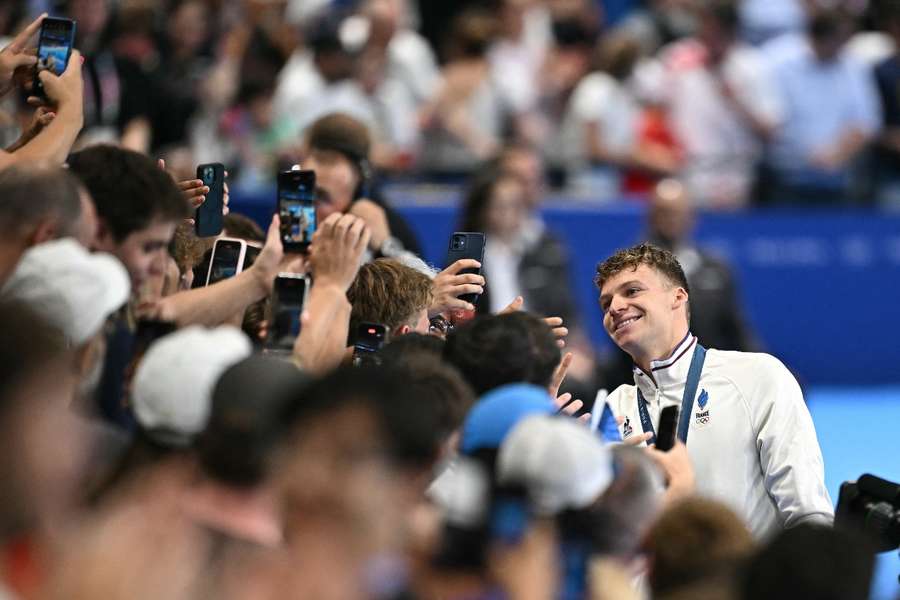
The 2024 Olympics are history. Now, it will be another four years of waiting until the US metropolis of Los Angeles 2028 delights Olympic fans. On social media, however, the fascination with the Olympics is probably not over yet. Numerous videos went viral, athletes became heroes, while others were discussed controversially for a fortnight.
Renowned social media analyst Mario Leo, CEO of Result Sports, spent a week experiencing the Olympic Games first-hand in Paris and told Flashscore how impressed he was by the biggest sporting event of the year.
"Within an hour of arriving in Paris, I was infected with Olympic fever," he said. "The events were super enjoyable. The volunteers felt like entertainers on holiday in the Caribbean, pushing the whole event. There was a lot of joy throughout the city. It also felt very safe, not least because of the high police and army presence.
"The French hosts were brilliant. At the handball match for third place between Denmark and Sweden, the hall was 80% full at 10 o'clock in the morning. That was something very special."
The social media expert also observed the current developments on social media very closely during the Olympics. Many athletes surprised him positively, not only in terms of sport, but also in terms of the media, and he describes the 2024 Olympic Games as a "digital arena where sports that otherwise don't enjoy a large media presence have come to life."
"Classic" Olympic stars with strong growth in reach, superstars stagnate
Just like UEFA during the European Football Championships a few weeks ago, the IOC did a great job of conveying the individual sports, national associations and athletes.
"Yusuf Dikec (+96.03% social media followers), the Turkish shooter who won silver without technical aids, but also the maximum authenticity of Australian canoeist Jessica Fox (+63.27%) come to mind. The two boxers Imane Khelif (+95.93%) and Yu-Ting Lin (+92.99%) were particularly controversial, whether on TV, in print or on social media. This gave them both a huge stage," says Leo, emphasising his observations with Olympic moments that went viral.
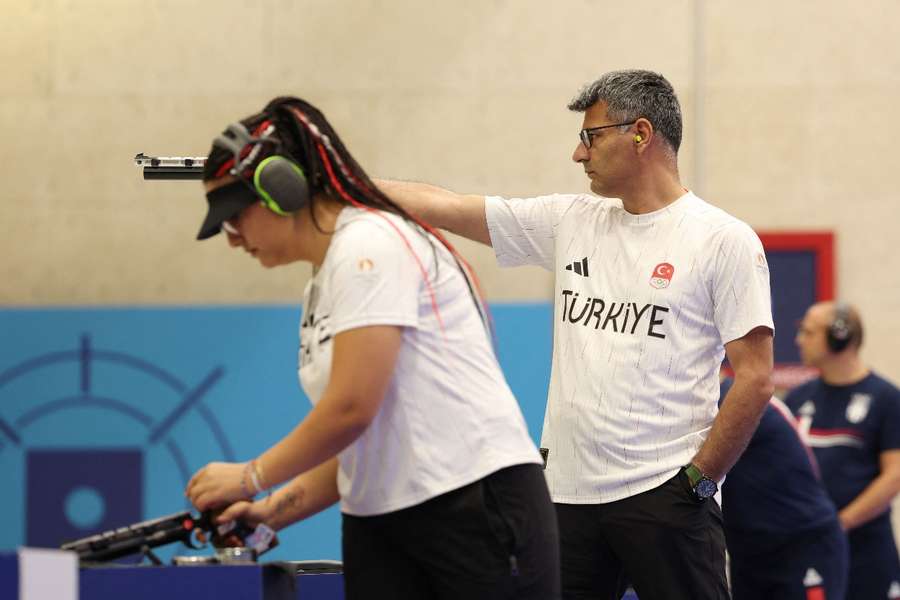
For athletes such as LeBron James (+0.26%), Novak Djokovic (+4.54%) and Iga Swiatek (+4.49%), who have been among the absolute top stars in the sports world for years, social media growth was rather low. According to Mario Leo, however, this was to be expected.
"The Olympics don't play a major role in their sports," he said. "The fact that they still took part in the Olympic Games is more down to their intrinsic motivation to add another precious metal to their personal track record. Compared to the NBA title or the French Open triumph, winning the Olympics is of secondary importance to fans of these sports."
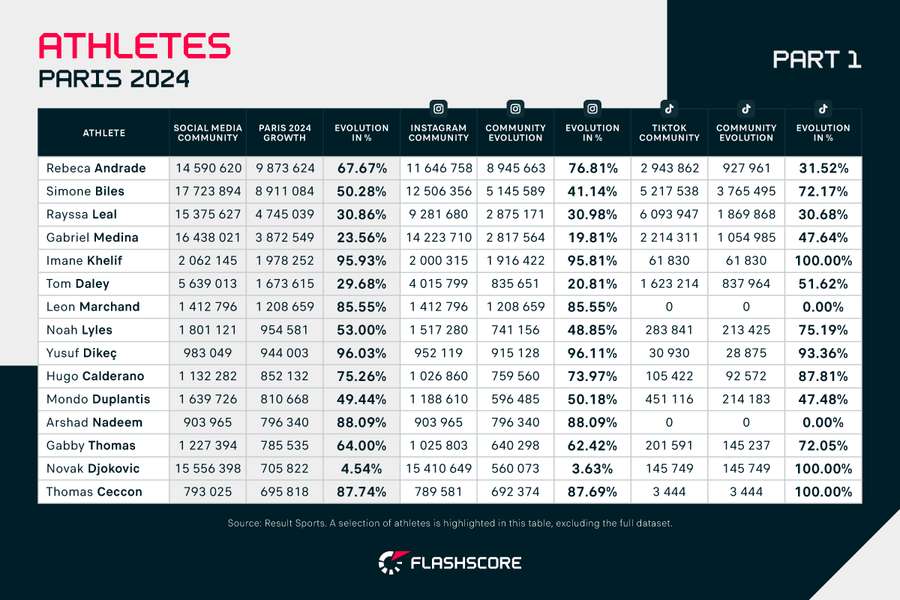
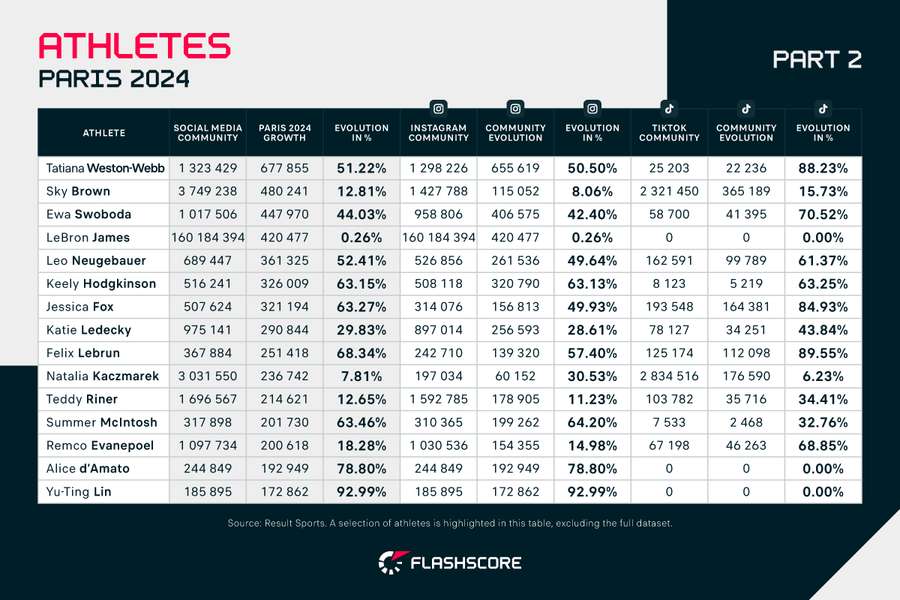
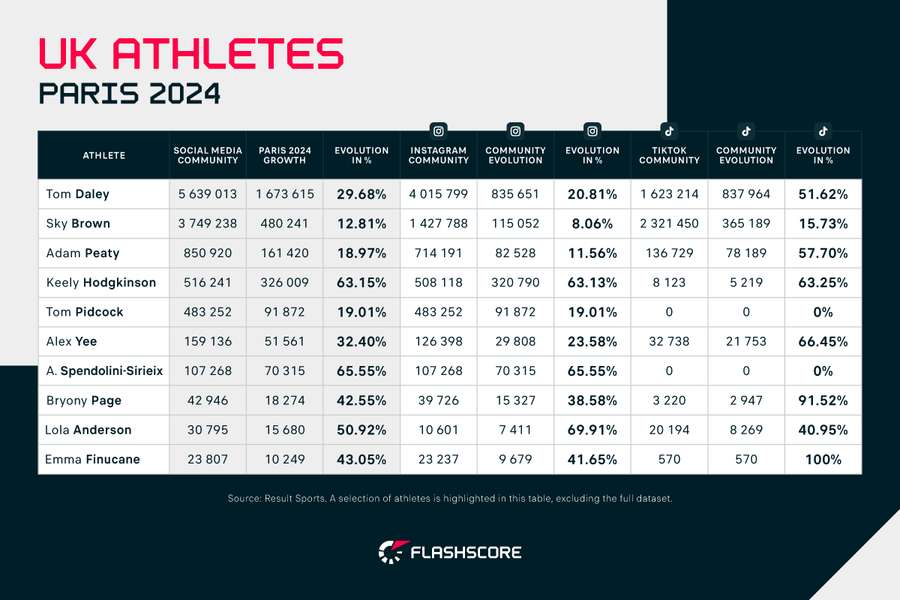
More of a culture for open discussion compared to Tokyo 2021
Compared to Tokyo 2021, the Games in Paris quickly came into the limelight, despite the short time gap to the European Football Championships. Not everything went perfectly, if you remember the water quality of the Seine or the discussion about the two boxers. The IOC also wanted to organise the most inclusive Olympic Games of all time in Paris. Mario Leo sees the media and social consequences of this objective:
"This led to really big media discussions in the target group. In Tokyo, only the withdrawal of Simone Biles at short notice was a really intensively discussed topic. In general, a higher and more open culture of discussion has been observed in the last three years, for example on the topic of athletes' mental health. There is more controversial discussion. As a result, the impact is also greater - for better or for worse."

